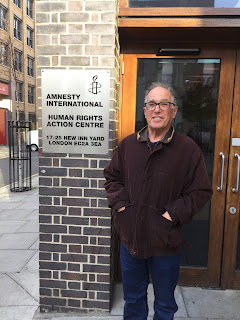Lewis Aptekar: Differences between Developed and Developing Nations

As former professor Lewis Aptekar knows, economic inequality is an issue that impacts communities and countries around the world – as well as one at the heart of the distinction between developed and developing nations. Simply put, economic inequality is the difference between individuals, populations or both in terms of income, assets and overall wealth – and is what is generally used to separate countries into these two economic categories. Lewis Aptekar in front of Amnesty International in London at meeting for Street Children Consortium A developed nation – as Lewis Aptekar knows – tends to be far more industrialized and has much higher per capita income levels than a developing nation. To qualify for the “developed” distinction, a country must have a per capita income of or higher than $12,000, though most developed nations reach an average of $38,000. As of 2010, the list of developed nations included Australia, Canada, Japan, New Zealand, the United State...